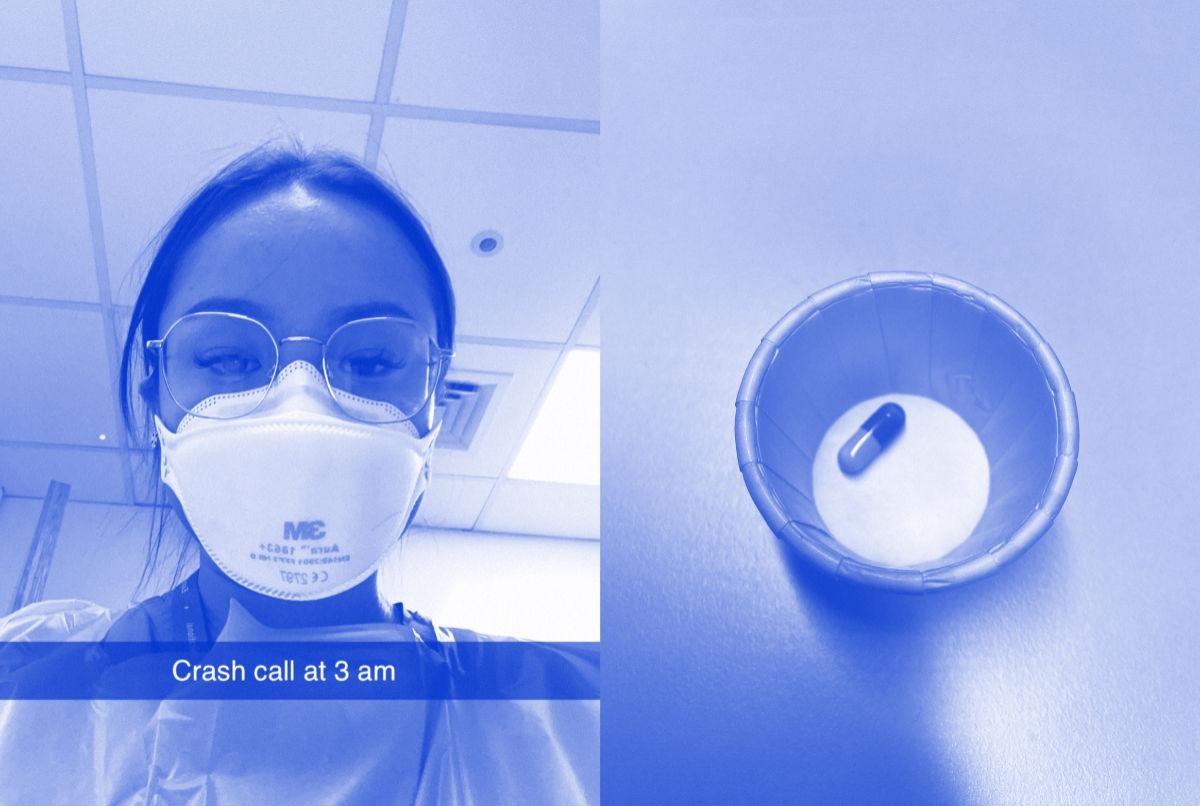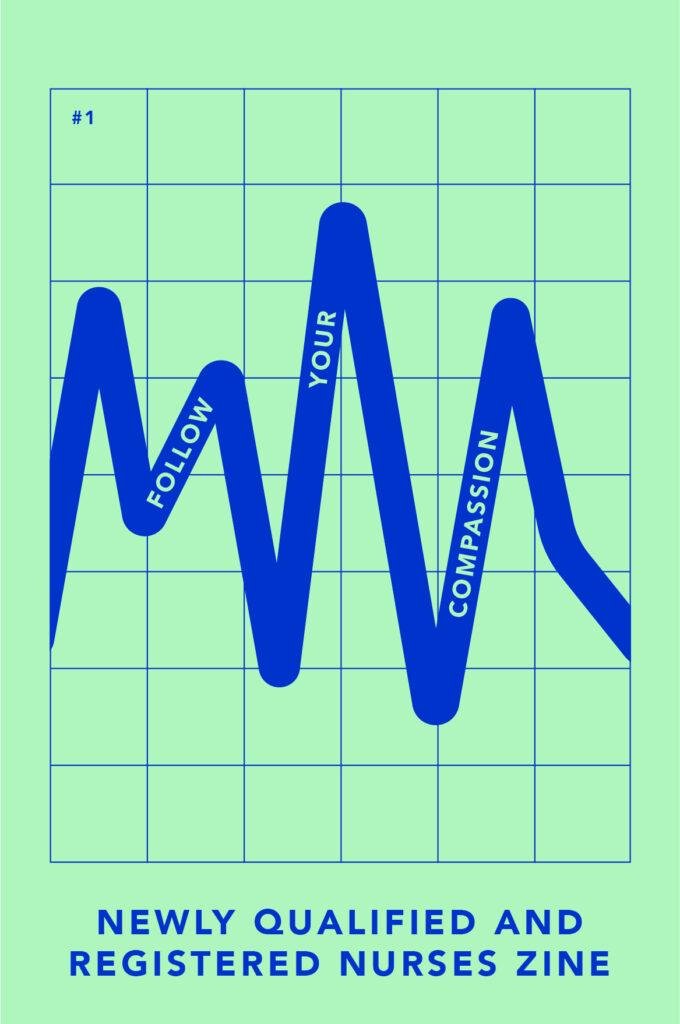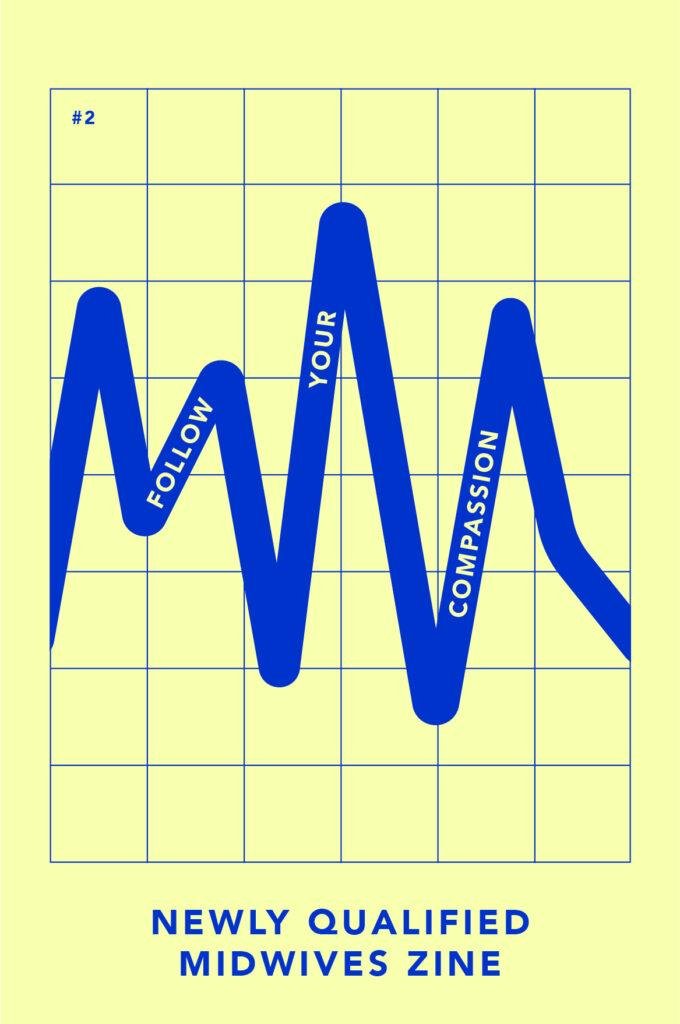
The project team
Dr Sarah McGloin
RCN Foundation
Dr Simon Newitt
The King’s Fund
Dharaa Patel
The King’s Fund
Curtis JamesFieldwork
Emily MacaulayFieldwork
November 2023
The project team
Dr Sarah McGloin
RCN Foundation
Dr Simon Newitt
The King’s Fund
Dharaa Patel
The King’s Fund
Curtis JamesFieldwork
Emily MacaulayFieldwork
November 2023
Follow Your Compassion is an ethnographic record of the working lives of twenty two newly qualified and registered nurses and midwives across the UK in 2023. The project is a companion piece to The Courage of Compassion (2020), a report by The King’s Fund and RCN Foundation which described the core workplace needs of nurses and midwives, and what must be done to meet them.
The catalyst for this project is a profound workforce crisis in health and care, and unprecedented numbers of nurses and midwives leaving both professions. One measure of this crisis is the industrial action taken by the Royal College of Nursing, whose members voted for action for the first time in its 106 year history in 2022/23, striking over low pay, poor working conditions and concerns for patient safety.
Follow Your Compassion is, very simply, an attempt to bring the reality of this crisis to life by sharing the everyday lived experiences, thoughts and feelings of newly qualified and registered nurses and midwives.
It’s important to note that the experiences highlighted here are those of nurses and midwives who qualified and/or joined the health care workforce during the Covid-19 pandemic and its immediate aftermath. The legacies and traumas of the pandemic are present in this project and provide important context, as does the ongoing impact of an extreme cost of living crisis, which has, predictably, hit the poorest hardest.
Follow Your Compassion is an ethnographic record of the working lives of twenty four newly qualified and registered nurses and midwives across the UK in 2023. The project is a companion piece to The Courage of Compassion (2020), a report by The King’s Fund and RCN Foundation which described the core workplace needs of nurses and midwives, and what must be done to meet them.
The catalyst for this project is a profound workforce crisis in health and care, and unprecedented numbers of nurses and midwives leaving both professions. One measure of this crisis is the industrial action taken by the Royal College of Nursing, whose members voted for action for the first time in its 106 year history in 2022/23, striking over low pay, poor working conditions and concerns for patient safety.
Follow Your Compassion is, very simply, an attempt to bring the reality of this crisis to life by sharing the everyday lived experiences, thoughts and feelings of newly qualified and registered nurses and midwives.
It’s important to note that the experiences highlighted here are those of nurses and midwives who qualified and/or joined the health care workforce during the Covid-19 pandemic and its immediate aftermath. The legacies and traumas of the pandemic are present in this project and provide important context, as does the ongoing impact of an extreme cost of living crisis, which has, predictably, hit the poorest hardest.
“The NHS is run on people like us. But at what cost?”

The nurses and midwives who documented their working days and nights for this project offer powerful and urgent insights into the state and future of both professions, and about the health and care system more broadly. Across their experiences, and despite the very different settings and locations for their work, six themes stand out:
Uncaring cultures
Cultures characterised by chronic excessive workloads, fear, anxiety and exhaustion are common. These are cultures to be endured, where incivility and a general lack of concern and care for the development and welfare of newly qualified staff is often present, and frequently administered not only by more senior colleagues, but by peers only a few months further along in their career.
“When you start out it can feel as though it’s trial by fire. It’s like an initiation not an induction.”
Cultures characterised by chronic excessive workloads, fear, anxiety and exhaustion are common. These are cultures to be endured, where incivility and a general lack of concern and care for the development and welfare of newly qualified staff is often present, and frequently administered not only by more senior colleagues, but by peers only a few months further along in their career.
“I was in a placement where it just felt like no one who worked there gave a shit, to put it politely. They didn’t care about what they were doing.”
The gap between theory and practice appears significant, while the quality and consistency of placements and preceptorships is variable and often poor. In the context of a workforce crisis, it’s perhaps not surprising that students should have little chance to be supernumerary and instead come to be relied upon as core members of diminished departments and teams, but students are often parachuted into cultures that are harmful in many ways, further undermining their learning, safety, and the safety of patients.
Inconsistent student experiences
The gap between theory and practice appears significant, while the quality and consistency of placements and preceptorships is variable and often poor. In the context of a workforce crisis, it’s perhaps not surprising that students should have little chance to be supernumerary and instead come to be relied upon as core members of diminished departments and teams, but students are often parachuted into cultures that are harmful in many ways, further undermining their learning, safety, and the safety of patients.
Psychological safety
Feeling safe enough to ask questions, raise concerns, make mistakes and learn is central to the induction of newly qualified staff, their retention, and the quality of care given in any health care team. Common instead are belittling experiences of unkindness, impatience, judgment, and sanction. The climate of fear and anxiety this promotes is profoundly unsafe.
“That fear of failure sort of underpins everything… And you get it drummed into you that you gotta think about your PIN, you’ve got to cover your ass the whole time.”
Feeling safe enough to ask questions, raise concerns, make mistakes and learn is central to the induction of newly qualified staff, their retention, and the quality of care given in any health care team. Common instead are belittling experiences of unkindness, impatience, judgment, and sanction. The climate of fear and anxiety this promotes is profoundly unsafe.
“I met a co-mentor who was 18 months into the job. She was virtually newly qualified and all she did was make me feel invisible. Just stay in the corner! Don’t speak when the staff are talking! Don’t talk!”
Newly qualified nurses and midwives have questions, ideas, and perspectives on what goes on in the workplace that might be used to drive service improvement. They have a valuable voice. But a voice is no use if no one is listening, and too often newly qualified staff are either silenced by the cultures they work in, or ignored by more senior colleagues consumed by their own operational and clinical pressures.
Being heard
Newly qualified nurses and midwives have questions, ideas, and perspectives on what goes on in the workplace that might be used to drive service improvement. They have a valuable voice. But a voice is no use if no one is listening, and too often newly qualified staff are either silenced by the cultures they work in, or ignored by more senior colleagues consumed by their own operational and clinical pressures.
Uncompassionate leadership
Good management and leadership sets standards and cultivates the culture of a team and department. Relational and compassionate leaders create safety and the conditions in which newly qualified staff can learn, be further developed, and ultimately retained. Management and leadership of this kind is out there, but it is operating in a context of huge financial and operational pressure, which creates a dominant organisational priority for efficiency. In this pressured environment, too much of the management and leadership present pursues this efficiency by succumbing to the attitudes and techniques of command and control.
“Recognising the potential in someone and saying thank you for who you are and what you can do, it can make all the difference.”
Good management and leadership sets standards and cultivates the culture of a team and department. Relational and compassionate leaders create safety and the conditions in which newly qualified staff can learn, be further developed, and ultimately retained. Management and leadership of this kind is out there, but it is operating in a context of huge financial and operational pressure, which creates a dominant organisational priority for efficiency. In this pressured environment, too much of the management and leadership present pursues this efficiency by succumbing to the attitudes and techniques of command and control.
“Why are we bringing so many more cohorts of international nurses into this situation where they’re not supported to thrive; if anything, they’re supported to fail.”
The experience of newly registered nurses and midwives who trained internationally warrants special mention, not least because the NHS (in particular) has become so reliant on recruiting these staff as a fix for the workforce crisis. But their experience follows a familiar historical pattern of high hopes and dashed expectations. The reality is that in many of the same ways newly qualified staff are let down, internationally trained staff are also let down. In addition, their skills, qualifications and experience are often dismissed, and they must navigate – largely unsupported and ill-prepared – a new way of life, language, culture, and system of health care often filled with discriminatory attitudes and hostility.
Poor treatment of internationally trained staff
The experience of newly registered nurses and midwives who trained internationally warrants special mention, not least because the NHS (in particular) has become so reliant on recruiting these staff as a fix for the workforce crisis. But their experience follows a familiar historical pattern of high hopes and dashed expectations. The reality is that in many of the same ways newly qualified staff are let down, internationally trained staff are also let down. In addition, their skills, qualifications and experience are often dismissed, and they must navigate – largely unsupported and ill-prepared – a new way of life, language, culture, and system of health care often filled with discriminatory attitudes and hostility.
Despite many of the dispiriting and challenging experiences described by the nurses and midwives who took part in Follow Your Compassion, there are reasons to be hopeful. There are positive accounts of colleagues, cultures and management, and feelings of enormous pride and determination throughout. And then there is the passion for both nursing and midwifery, which won’t save either profession, but does create the goodwill that remains a vital ingredient in services that, without it, would surely fail. And finally, there is the compassion shown to patients, who are often entirely unaware of the quiet internal battles being fought by the newly qualified staff caring for them.
This project isn’t about providing recommendations for what should happen next, these can be found in The Courage of Compassion (2020), which clearly articulates action that is consistent with the themes presented in this project. The aim of Follow Your Compassion is much simpler. It is to present the experiences of newly qualified and registered staff unfiltered, so that they might be seen, heard and understood better.
As you explore the website, the hope of the project team and participating nurses and midwives is that you will hear, understand and have compassion for newly qualified staff. And that you will follow your compassion to whatever determined action you can take to help address the urgent challenges facing both professions, and the wider health and care system.

